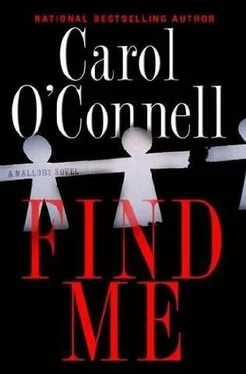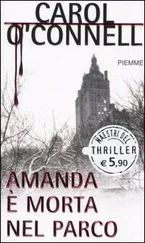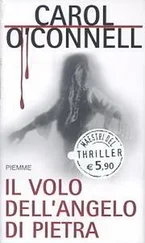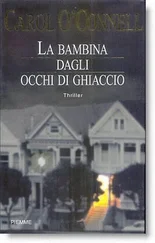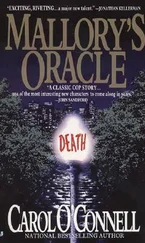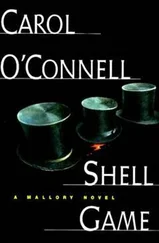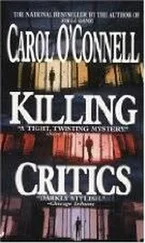Sometimes they came back. Sometimes they died.
“Ta k e that exit,” said Riker. The overpass ahead would give him the high ground he wanted. As the Mercedes climbed the ramp, he lit a cigarette and rolled down a window. “You know what drives most people nuts?” And now the detective had to smile. Well, yeah. The man in the driver’s s e at would know that. Psychology was Charles Butler’s stock and trade. But, what a gentleman, he kept his silence.
“It’s all the things that just aren’t fair.” Riker shot a burnt match out the window. “Mallory’s e arly life was one long bad trick on a little kid.” He squinted into the darkness, as if he could see her as a child out there, cadging loose change from whores and eating out of garbage cans. “I think the kid’s on a mission. She’s counting up all the cheats, the stolen things, lost things. That’s what drives people crazy. Imagine the life she could’ve had- if her mother had lived. Funny thing is, I don’t t hink that other life would’ve measured up.”
“How can you say that?” Charles made a hard right turn at the top of the overpass. “If her mother hadn’t d ied, she wouldn’t have ended up homeless and lost.”
“Lost? Never,” said Riker. “The kid was a born survivor. But let’s say you’re right. In another life, she gets all the perks-two real-live parents, a dog and a swing set in the yard. You think she would’ve turned out better? I don’t. Lou and Helen had her tested when they took her in.”
“Louis told me.” Charles pulled up to a gas pump and turned off the engine. “Her gift was mathematics.”
“Yeah, a math whiz.” Riker stepped out of the car in a futile attempt to pay for the gas, but Charles already had his credit card in the slot. “So she was always meant to be a computer witch. No change there. And she’d still be real pretty. If you saw her on the street, you’d stare long and hard. But then you’d move on. Most every guy would, and you know why.”
Charles watched changing figures on the gas pump. He nodded. He knew. How many men could believe they had a shot with her? Hobbled by that matchless face, she would have been just as unapproachable as she was today.
Riker smiled at the frog-eyed, eagle-beaked man who loved Kathy Mallory. “You think she would’ve turned out more human, Charles? The kind of girl who could see her reflection in mirrors? Well, maybe she’d be a vain little snot, and you wouldn’t w aste six minutes having a beer with her.”
Oh, this was heresy in Charles Butler’s u niverse, where Mallory stood at the exact center, and all else revolved around her. “No,” said Mallory’s apologist. “She would’ve had a real childhood instead of all those feral years. It would’ve made all the difference in how-”
“A lot of her talent came from those years on the street,” said Riker. “Your alternate Mallory wouldn’t be able to open pick-proof locks. So she might let you call her Kathy, but she wouldn’t have the makings of an even better cop than her old man-and I mean back when Lou was in his prime.” And now he played to the other man’s s e nses. “Oh, and the way she walks. You can see it all coming at you, the badge and the gun and all that power. If she’d gotten that other life, she’d be ordinary-or worse.” The detective exhaled a cloud of smoke. “Not the kid that Lou and Helen raised, the one who fascinates you-not my Kathy.”
Riker dropped his cigarette butt on the ground and crushed it with his shoe. “I wouldn’t c hange a minute of her history… not one screwed-up brain cell in her head… nothing. You look at her and see all that potential. And me? I only wish I could make her see what a great kid she is.” And maybe she was a sociopath with the eyes of a stone killer, but Riker had never expected perfection from those near and dear.
Dr. Paul Magritte led Mallory to a Lincoln Town Car. He held the back door open so that she could enter first, but this was not to be. Of course not, and he smiled at his error; she would hardly trust a stranger at her back. Tr ust was not in her stars, her style or her pathology.
He entered first. When she closed the door for privacy, he braced himself.
“Your missing camper,” she said. “Gerald Linden? He’s dead. His body was found at the beginning of the road.”
The doctor closed his eyes. “It can’t be connected. The FBI has been finding bodies along Route 66 for more than a year now, but they’re all children.”
“And you know this how ?”
“The Internet. I ran several online therapy groups for parents of missing children.”
“And murdered children,” said Mallory. “You left that part out.”
“Yes,” he said, “forgive me.” Oh, what a foolish idea that was. Forgiveness would be anathema to the likes of her. “I have five therapy groups, twenty-eight patients all told.”
“I counted forty-two people when you stopped at the diner in Illinois.” Detective Mallory said this as if she had caught him in a lie. She turned to the window and the rows of parked cars to one side of the field. “How many more people have joined up since then? Twenty? More than that?”
“Parents have been joining us all along the road. Obviously, not all of them are my patients. The rest came from other Internet connections. A year ago, the FBI located the graves of a few children and told the parents where the remains had been found. The fathers of two of those children were in one of my therapy sessions. Now that got my attention, two children, both buried near roads. Odd behavior for a murderer-to risk being seen burying a victim. Most bodies are found in remote areas with more concealment and less-”
Oh, he could see she was losing patience with him. He was telling her things that she already knew, and he should not make that mistake again; that much was clear as she leaned toward him-just a touch of menace to train him properly.
A quick learner, he continued. “The graves were on different roads, but an acquaintance told me that they were both segments of old Route 66. He’s something of an expert on this road. And he has a gift for seeing connections and patterns. When he explained the odds of this happening to-”
“What’s his name?”
When he hesitated, she leaned in close-too close-saying, “Now we’ve established that ‘ acquaintance’ and ‘ gift’ are code words for ‘ patient’ and ‘ crazy .’”
Paul Magritte chastised himself and vowed to choose his words more care- fully. “I contacted psychologists with other Internet groups. I found more parents of murdered children with roadside graves. Some of the bodies turned up years ago-all Route 66 burials, all little girls, aged five to seven.”
“You knew you were dealing with a serial killer.” This was an accusation.
He nodded. “According to my sources, the FBI hasn’t c o ntacted any parents in the past ten months, but rumor has it that they’re still digging up the remains of children on this road. One grave was found not three miles from here.”
“Why would you bring all these people into a serial killer’s t e rritory?”
“Adults won’t fit his pattern.”
“Gerald Linden.” Detective Mallory wielded this name as a hammer.
“You can’t c o nnect that to-”
“Can’t I? You’re a shrink. You know the victim profile can change at any minute in a murderer’s d ay. So don’t e ven try to hide behind that. Now back to my question. Why would you put all these people in danger?”
“The parents were suffering too publicly. I wanted to get them off the Internet.”
“So you know he’s in one of the therapy groups,” said Mallory, “probably all of them. You had to know he was fixated on the parents.”
Читать дальше
